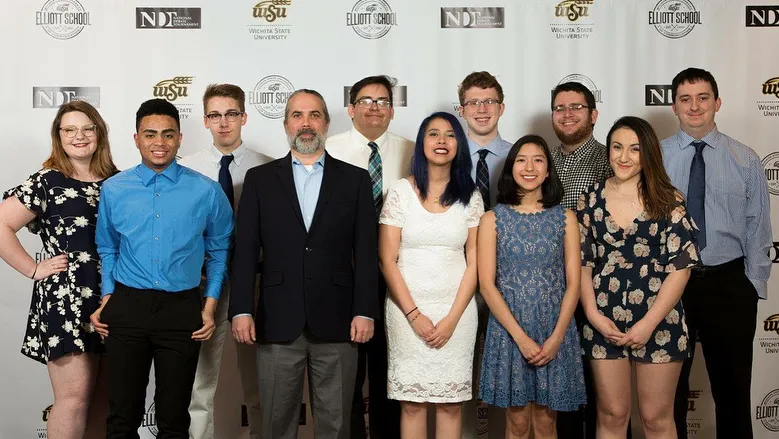
University of Kentucky Debate Team
The University of Kentucky Debate team, housed in the College of Communication and Information, has had the strongest start in their history. By winning four major tournaments, the team has secured the number one rank by two major national rankings, and has a 4-1 record against Harvard University, the number two team in the country.
The team recently competed in, and won, the Wake Forest Tournament. The tournament, which was the largest tournament of the first semester, had 125 teams from 26 states represented.
Jacinda Rivas, the team president and philosophy senior from Chicago, Illinois, recently explained to UKNow what it takes to be a nationally ranked collegiate debater.
UKNow: Define what it means to be a debater to someone who knows nothing about it.
Rivas: A debater is a person who devotes their time to research and argument preparation to both affirm and negate a resolution.
UKNow: What do you do at practice?
Rivas: We spend a couple hours every day doing work. The week of a tournament we spend more time than average doing work.
Practice means a couple of things for us — giving speeches, practice debates with the other teams, research and argument discussions. Research is one of the most important parts of debate because you have to know the intricacies of the topic and that is only possible through research.
The speeches at practice are a simulation used to figure out the best way to explain a topic in advance or a re-do of a speech from a tournament. This practice helps to prevent someone from losing the same argument twice and to develop the correct language to explain your argument.
UKNow: How do you prepare for a large tournament such as the Wake Forest tournament?
RIvas: Because there are so many teams in attendance, we have to figure out what teams we should focus on. We figure out what the best teams in the pool of competitors are and figure out the best arguments against what they defend. A lot of the preparation for these larger tournaments is done through broader work that applies to many teams and then focusing on the particulars of the best teams in the country.
UKNow: How do you handle the pressure of an important tournament?
Rivas: Preparation is key. If you have done the work and the research before the tournament begins, the curveballs that make tournaments stressful become minor problems. It is a very stressful environment to be in at the actual tournament, especially at the high levels of competition, but it is necessary to focus on only one round at a time.
UKNow: Are there any misconceptions about debaters or debate teams?
Rivas: We do not just debate random topics off the cuff. We spend countless hours doing research on a particular topic in order to be well versed and articulate on the matter. Saying “debate me” to us is not an accurate depiction of what we do because it fails to include the research that is integral to competitive policy debate. Speaking fast is something that is also not expected, which does prevent competitive policy debate from being a spectator activity. We speak anywhere from 200-300 words per minute. This is in order to increase the number of arguments that can be made against a position.
UKNow: How does it feel to be currently ranked no. 1 in two national rankings?
Rivas: The work that was required to achieve that status is incredible and well deserved. Dan and Anthony (juniors Dan Bannister and Anthony Trufanov) are incredibly hard working, not only for their own success but also the success of the rest of the team.
The next goal for the UK team is to win the national championship in March, and continue to grow the program.
"What the team has done so far speaks volumes about what is possible at Kentucky. The two things that matter most in competitive debate are preparation and the belief that you can win. I'm proud of the team and the rest of the coaching staff for embracing both and demonstrating that anything is possible," said David Arnett, director of the UK Debate Team.
UK won the national championship in 1986, but has not accomplished the same feat since then. UK has also had the overall top speaker at the National Debate Tournament six times and was ranked no. 1 in the nation in 1994 as well.